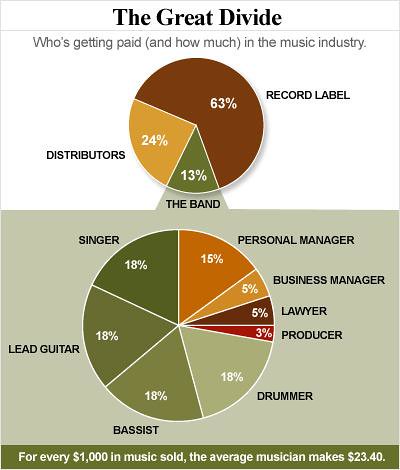5. Artists Do Get Intentionally Shelved
You won’t find a whole lot about this on the Internet. You’ll hear mentions of it in interviews with label veterans; you may read about it in books involving the music industry. But, almost every other shytty thing that record labels do has been covered extensively in some article or another.
So, it’s time that this information be made as public as possible.
Out of the 99.8% of artists signed to a record label and dropped before fulfilling their contract, a certain percentage are
intentional failures.
That is, major record labels will intentionally hold up an artist’s release and prevent them from ever seeing the light of day. The crime is almost unforgivable –
but, the logic is pretty simple:
Let’s say, for example, it’s the year 2008, and you’re a teen pop singer. You’re white but vaguely urban, bright, shiny, ready for the big time…
Posting cover videos on YouTube, you start racking up millions of views and getting a loyal following. All of a sudden, label execs are starting to call your Mom asking about you.
Next thing you know, you’re flying all expenses paid to LA for a week of meetings with major record labels.
You and your family are excited for the bright future that is unfolding before you…
You meet with RCA and they seem excited about your future, too. They offer you a 5-album deal with a huge advance.
The next day, Atlantic offers you even more!
Then comes Island Records…
Island offers you more money than your family has made in the past 5 years. They promise you the whole world. They walk you through their massive plan, step-by-step, to turn you into the biggest pop star since Michael Jackson…
They have a 10-year plan that puts you in the drivers seat of the most successful music career of the 21st century…
And you and your family sign on the dotted line.
Game over.
What you didn’t know, was that for over six months, Island/Def Jam has been developing Justin Bieber: a young, white but vaguely urban, bright, shiny pop singer. You aren’t the biggest artist of the 21st century, he is. You’re just a threat. When you started poking your head out of the ground, your fate was sealed.
Island could have ignored you, yes. They could have left you and your family alone. But, with you making waves on YouTube, one of their two competitors would definitely have signed you. Then, you would be in direct competition with their shiny new pop star. To Island/Def Jam, Bieber represents untold billions in revenue. So, they are more than willing to outbid their competitors to get you into a gigantic record deal.
We’re talking dictionary sized, player.
Island throws enough paper at you to keep you from recording, releasing, or even publicly performing a single song for the next half decade. Plenty of time for Justin to get a stranglehold on the marketplace.
Dream deferred.
Does this happen?
Yeah. It definitely happens.
Maybe, for some of them, the label had every intention of giving them a fair shot. Unfortunately, as many have scientifically documented, the Top 100 sound becomes more homogenized every year. So, if you’re getting signed to a major label, you probably sound like someone they care a lot more about than you.

































 That’s why a lot of these artists be snapping and looking crazy as hell.
That’s why a lot of these artists be snapping and looking crazy as hell.
